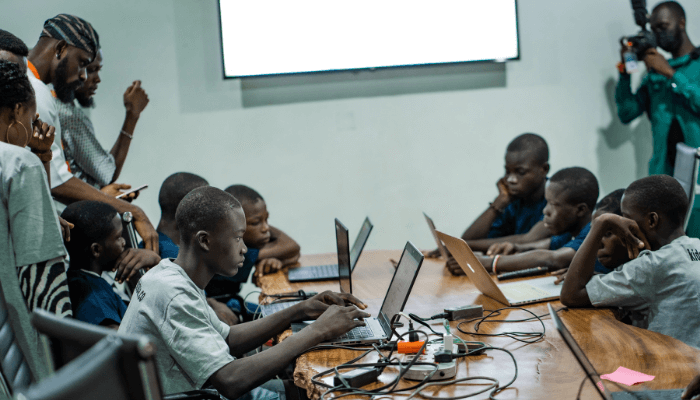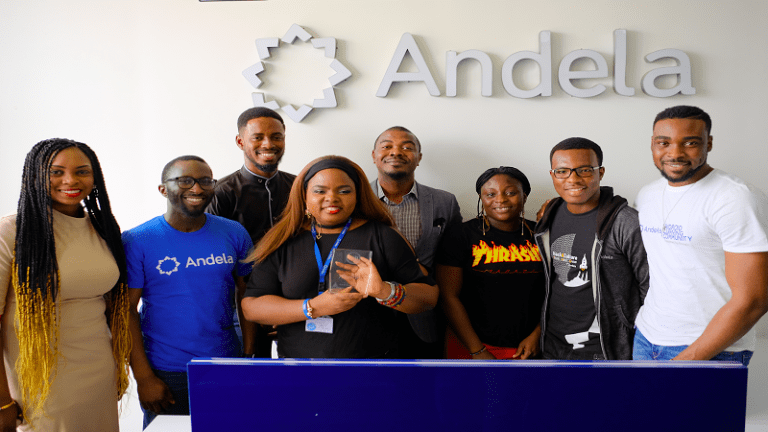How Local Ed-tech Startups are Redefining Learning

Across Nigeria, a wave of educational technology startups is transforming how students learn and teachers teach. Local education technology startups are emerging as game changer in how students learn and engage with content. These agile innovators are bridging learning gaps with tailored, tech driven solutions. This article explores how these startups are redefining education, addressing systemic challenges, creating more inclusive, accessible learning experiences for students and the future of education technology in the region nationwide.
Over the past decade, Africa’s EdTech sector has witnessed a digital awakening driven by a rising demand for accessible, quality learning. In Nigeria alone, over 10.5 million children are out of school, according to UNICEF a gap that local EdTech startups are striving to close.
With increased internet penetration, the use of smartphone and a booming youth population, these startups are riding the wave of Africa’s broader tech revolution.
The COVID-19 pandemic further accelerated the shift to digital learning, pushing platforms like uLesson, google classroom, and udemy into the spotlight as they provided accessibility, scalable, affordable and localized educational solutions. This momentum aligns with a larger trend: Africa’s tech ecosystem is rapidly evolving, and EdTech is emerging as a key player in shaping the continent’s future.
THE CURRENT DEVELOPMENT
Nigeria’s education technology sector is experiencing significant growth, with startups like uLesson, udemy and google leading the way in transforming learning experiences.
U-Lesson
In May 2025, uLesson was recognized by TIME magazine as one of the World’s Top EdTech Rising Stars, highlighting its impact on transforming education through technology. Founded in 2019 by Sim Shagaya, uLesson has expanded its offerings to include Miva Open University, Nigeria’s first fully online university, providing a range of undergraduate and postgraduate programs.
Udemy
Founded in 2010 by Eren Bali, Gagan Biyani and Oktay Caglar. Udemy is a global online learning platform that offers over 210,000 courses across various fields ranging from business and tech to personal development.
While headquartered in San Francisco, Udemy has a strong global footprint, including active user bases in Africa. The platform enables local educators and professionals to create and monetize courses, making quality education more accessible and scalable.
In 2021, Udemy went public on the NASDAQ, underlining its status as a major player in the global EdTech ecosystem. It supports millions of learners and instructors worldwide, including a growing presence in Nigeria and other parts of Africa, where digital learning is on the rise.
Google Classroom
Launched in 2014 by Google, Google Classroom is a free web based platform designed to simplify the process of creating, distributing, and grading assignments in a paperless way. It integrates seamlessly with other Google Workspace tools like Google Docs, Drive, and Meet.
Widely used across the globe, Google Classroom became especially vital during the COVID-19 pandemic, enabling remote learning for millions of students and teachers including in African countries where digital infrastructure is growing.
In Nigeria and other parts of Africa, Google Classroom has been adopted by both public and private institutions as a foundational tool for virtual learning, supporting a shift towards more inclusive and technology driven education. Its user friendly interface and accessibility make it ideal for low resource settings.
These developments underscore the significant strides Nigerian EdTech startups are making in redefining learning, not only within the country but across the African continent.
REACTIONS AND IMPACT
The growing influence of EdTech platforms in Nigeria and across Africa is drawing praise from educators, analysts and parents alike.
The personalized learning experience and accessibility they offer are significantly narrowing the education gap, especially in underserved communities.
What we are seeing is a paradigm shift from rigid classroom to flexible student centered platform said Sim Shagaya Founder of U-Lesson.
This is not innovation, it’s an educational reawakening for Africa.
EdTech is not just filling gaps in our education system, it’s redefining how we think about learning, says Dr. Amina Yusuf, an education consultant and policy advisor.
Meanwhile, teachers are leveraging tools like Google Classroom to reach students beyond the walls of traditional classrooms.
I used to struggle with grading and student engagement, says Mrs. Ogechi Nwosu, a public school teacher. Now, with Google Classroom, everything is more organized and my students are more responsive even the quiet ones.
Experts highlight the broader implications for economic growth and digital inclusion. According to TechCabal, Nigeria’s EdTech scene is expected to contribute significantly to the digital economy by equipping the next generation with skills needed for a fast changing world. The World Bank also notes that digitally literate populations are better positioned to drive innovation and attract investment.
As local startups scale and collaborate with global platforms like Udemy and Google, the ecosystem stands to benefit from knowledge transfer, job creation, and increased access to quality education especially for rural and underserved communities.
If the trend continues, Nigeria and other African nations could witness a new era of knowledge driven economies, where local solutions not only solve local problems but also compete global.
The future of EdTech in Africa is poised for even greater expansion. With increased interest from investors.
On the global front:
- uLesson are gearing up for new product launches, regional expansion and strategic partnerships aimed at deepening their impact.
- Udemy is actively exploring partnerships with African educators and institution to localize content and improve market relevance.
- Google classroom continues to integrate more offline friendly feature to better serve areas with limited internet access.
Funding remains a strong enabler. In recent years, EdTech startups across Africa have attracted millions in seed and Series A rounds. With venture capital interest growing, more players are entering the space, further intensifying innovation and competition.
From the lens of Techdom Africa, these developments reflect three broader trends:
- Local Innovation: African founders are not just replicating Western models they are building context specific solutions rooted in local realities.
- Sustainable Development: Digital education is promoting lifelong learning, reducing inequalities, and equipping youth with future ready skills.
- Digital Inclusion: Mobile-first platforms are bridging the urban-rural divide, ensuring that education reaches even the most underserved communities.
As policy frameworks and internet infrastructure continue to evolve, EdTech will remain a cornerstone in Africa’s digital development story—reshaping not just how students learn, but how nations grow.





